-
Thursday, 17 October – 7pm / Sabatini Building, Auditorium
1966–1982: Towards the End of the Dictatorship?
Lecture by Joan Garcés
The current political, socioeconomic and cultural crisis of the Spanish State is articulated with crisis structures from its contexts in Europe and the Mediterranean. Some of the causes are rooted in the intervention of Germany’s Third Reich and Italy in the Spanish Civil War and its final outcome in 1939; in the effects of the Cold War with the USSR on the Iberian Peninsula from July 1945; in reactions that have developed in the UK, the United States and Russia since the reunification of Germany in 1990; and in China’s projection as an economic force. This lecture, therefore, sets forth a reflection from the links of certain variants which are relevant to these events in contemporary Spain.
Presented by: Jesús Marchante and Horacio Sainz (Asociación La Comuna)
Attendance: free, until full capacity is reached
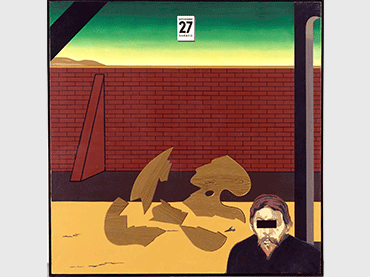
-
Saturday, 19 October – 6pm / Nouvel Building, Floor 0, exhibition rooms
An Uncertain Dream
Tour around the exhibition The Poetics of Democracy. Images and Counter-Images from the Spanish Transition
Conducted by Jesús Marchante and Horacio Sainz, Asociación La Comuna
Attendance: complete capacity
Meeting point: the adjoining area between the Sabatini Building and the Nouvel Building, Floor 1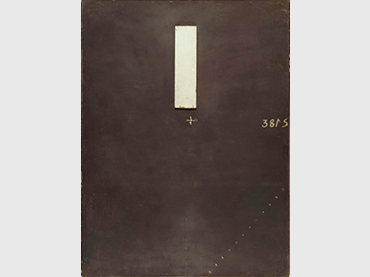
-
Tuesday, 5 November – 7pm / Nouvel Building, Protocol Room
Possible Futures. Speaking Through Practice
A conversation between artists Eulàlia Grau, Ana Navarrete and Paula Rubio Infante
On one side, this conversation sets out a debate on the artistic practices that have granted visibility to issues surrounding Spain’s recent past in order to consider the present and, on the other, constitutes an exercise of collective memory that encourages dialogue. Based on some of the works of the guest artists, different questions arise: At the current time, how can we re-read the reflections implicit in these works? What is at the heart of the debate today? How can we participate in it from the perspective of artistic practice or from the perspective of spectators?
Moderated by: María Cerdá Acebrón and Ramón Mateos
Attendance: free, until full capacity is reached
![Eulàlia Grau. Temps de lleure (Etnografia) (Tiempo de ocio [Etnografía]). Acrílico y emulsión fotográfica sobre lienzo, 1974 Eulàlia Grau. Temps de lleure (Etnografia) (Tiempo de ocio [Etnografía]). Acrílico y emulsión fotográfica sobre lienzo, 1974](https://recursos.museoreinasofia.es/legacy_programs/3_2.gif)
-
Friday, 8 November 11am / Sabatini Building, Floor 2, room 206 (Guernica and the 1930s)
Pablo Picasso and Robert Capa, Paradigms of the Horrors of War
Opening of the second edition of the Festival Robert Capa estuvo aquí (the Rober Capa Was Here Festival) and a tour from the Museo Reina Sofía to number 10, calle Peironcely, Puente de Vallecas, Madrid
In November 1936, following a string of terrifying bombings of Madrid’s civilian population by the German and Italian air forces, Hungarian photographer Endre Ernö Friedmann, better known as Robert Capa, took a picture which today has become an icon of the horrors of war and the vulnerability of childhood. In the photograph, two girls and a boy are sat on the edge of a rubble-filled pavement outside a shrapnel-riddled house that could be their home. They look happy and unconcerned by the brutal landscape surrounding them.
Capa took another shot of the same scene, this time of a teenager who, leaning against a dilapidated doorframe in the door to the house, observes the three youngsters. The first image was published in the mainstream media in the USA, France, the UK, and Switzerland and moved the entire world. Unfortunately, over the passage of time, the negatives and original paper copy were lost. Fortunately, a copy of the second image, donated by the photographer’s brother, Cornell Capa, is conserved in the Museo Reina Sofía Collection.
In 2010, research conducted by José Latova and Alberto Martín Escudero identified the location of both images as number 10, calle Peironcely, in the district of Entrevías, Puente de Vallecas, Madrid. Six years later, the #SalvaPerioncely Platform, made up of over twenty pacifist cultural organisations from the USA, Germany, France, Portugal and Spain, called on the Madrid authorities to protect and expropriate the building and rehouse the current residents in suitable conditions so as to turn the property into the home of the Robert Capa Centre in order to research the aerial bombing in Madrid. On 20 July 2016, the Madrid City Council’s plenary approved the first three measures and on 27 November 2018 gave the go-ahead to create the centre.
In June 2018 a new discovery was made. Collector Juan Carlos Almazán Masso acquired a set of images of the Civil War originating from the UK, including, to date, the only original copy on paper which, although not developed from the original negatives, is the first image of calle Peironcely, and one which was disseminated internationally.
In conjunction with the second edition of the Robert Capa Was Here Festival, the Museo Reina Sofía will display the two photographs together for the first time in the rooms adjoining Guernica — three pertinent testimonies of the atrocity of war.
Programme: Robert Capa Was Here Festival
Organised by: Anastasio de Gracia-FITEL Foundation
Meeting point: the adjoining area between the Sabatini Building and the Nouvel Building, Floor 1
Capacity: 60 people
Attendance: Complete capacity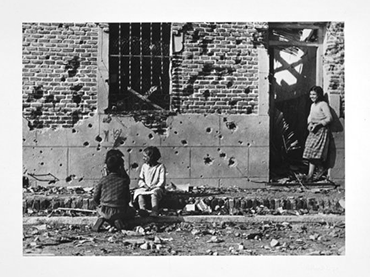
-
Saturday, 16 November – 8pm / Nouvel Building, Courtyard
Latent Peripheries. Audiovisual Reflection on Exile
Mapped projection on the front of the Sabatini Building and live music
Latent Peripheries demonstrates, in a reflection which questions the present of Peironcely 10, the viewpoint of multiple exiles that disrupts today’s society. The city has grown without looking back, in waves of speculative greed that, for economic or political reasons, has condemned many of its inhabitants to exile. These exiles have become subjects without rights who fight to stay afloat in a growing ocean of non-solidarity that puts the victim at fault, and turns difference into suspicion and diversity into dissonance. Therefore, Latent Peripheries offers a visual and sound-based reflection on these circumstances and on the vulnerability of outlying areas in cities, where inequality often resides.
Programme: Robert Capa Was Here Festival
Organised by: Anastasio de Gracia-FITEL Foundation and the Degree in Fine Arts from the Rey Juan Carlos University
Art directors: Miguel S. Moñita and Tomás Zarza
Production director: Uría Fernández
Live music: Trinidad Jiménez and Odin Kaban
Visual works: students and teachers from the Degree in Fine Arts at the Rey Juan Carlos UniversityAttendance: free, until full capacity is reached
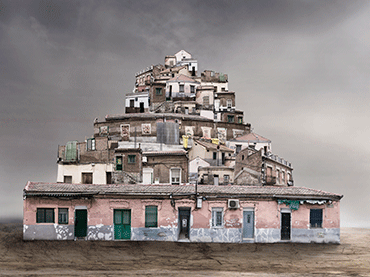
-
Thursday, 14 and Monday, 25 November, and Wednesday, 4 December – 10:30am / Tours around Madrid
Robert Capa’s Madrid
Destroying Childhood (Thursday, 14 November)
Madrid Under Aerial Terror (Monday, 25 November)
Art in Danger (Wednesday, 4 December 2019)
The ties of Robert Capa’s professional beginnings to the Spanish Civil War and its impact on Madrid are well documented. According to Capa’s biographer, Richard Whelan, the images he took of the city “highlight that he began to understand that the truth of the war was not only found in the clamour of battle, in the official scene, but also in its contours, on the faces of soldiers enduring the cold, fatigue and tedium behind the lines, and of civilians racked with fear, suffering and loss”. Therefore, these routes follow the photographer’s footsteps and the bombs dropped on Madrid’s streets. The starting point of every tour is the Museo Reina Sofía’s room 206, Guernica and the 1930s, in which the two photographs Capa took in front of calle Peironcely 10, in 1936, are displayed.
Programme: Robert Capa Was Here Festival
Organised by: Anastasio de Gracia-FITEL Foundation
Guides: Carlos Antonio Figueroa Lillo and Aurelio Merino
Documentation: Uría Fernández and Roberto García Fernández
Capacity: 25 places per tour
Meeting point: the adjoining area between the Sabatini Building and the Nouvel Building, Floor 1
Attendance: free, with prior registration by calling +34 91 456 21 31 or writing to agfitel@agfitel.esMore information at www.festivalrobertcapaestuvoaqui.es
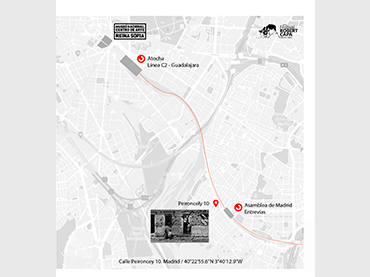
Return to the Future?
Eighty Years on from the End of the Spanish Civil War
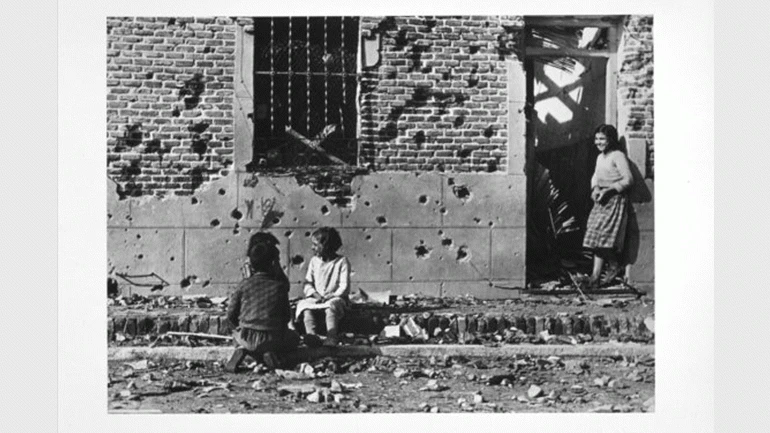
Held on 17, 19 Oct, 05, 08, 14, 16, 25 Nov, 04 Dec 2019
The 1936 coup d’état and the ensuing civil war splintered reality, the pieces scattering across complex [in]exiles, disappearances, silences… faltering and inconclusive narratives, fertile, multifocal and widespread memories that pulse and throb today, cross-examining the present and managing to distort a univocal, hegemonic gaze. Eighty years on from the end of the Spanish Civil War, the drive of the silenced once again challenges linear history and its ellipses. Thus, the programme Return to the Future? starts from an analysis of three different stages: the Dictatorship, the Transition and Democracy in Spain, reactivating critical power and confronting logics of memory from a present that strikes up a dialogue between accounts of the past and visions of possible futures.
Force line
Politics and the aesthetics of memory
Related link
Organised by
Museo Reina Sofía, Asociación La Comuna and the Anastasio de Gracia-FITEL Foundation
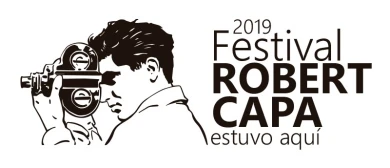
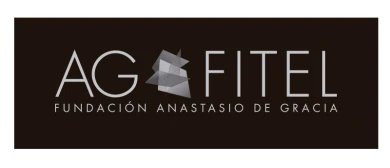
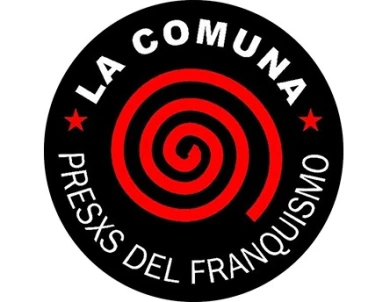
Participants
María Cerdá Acebrón (Madrid, 1984) is a visual artist, researcher and teacher who currently lives and works in Mexico City. In recent years she has been working on an interdisciplinary project called Recuerdos del futuro, based around the visual memory of Republican exile in Mexico from a third-generation perspective.
Joan E. Garcés (Lliria, Valencia, 1944) is a jurist and political scientist who holds a PhD in Political Sciences from Sciences-Po and Sorbonne University, Paris, and a Degree in Law from the Complutense University of Madrid. He was personal adviser to Chilean President Salvador Allende from 1970 to 1973. In 1999 in the Swedish Parliament he received the Right Livelihood Award in recognition of his work in the defence of international law and human rights.
Eulàlia Grau (Terrassa, 1946) is an artist whose work documents the weakness, contradictions and perversities of the capitalist system in more obvious perpetuation mechanisms such as the police, the army and prisons, and other more subtle ones like family, school and the media. Among other issues, her concerns centre on gender critique, calling out the situation of abuse and inequality for women and questioning female stereotypes in the public and private sphere.
Jesús Marchante (Alcázar de San Juan, Ciudad Real, 1954) and Horacio Sainz (Madrid, 1953) are members of La Comuna, an association of ex-prisoners and victims of political reprisals from Francoism, set up in the spring of 2011. The association takes its name from the communes that organised resistance in prisons and is made up of a broad range of people who suffered reprisals during the Franco regime and others acutely aware of the ideology of truth, justice and remediation vindicated by the association.
Ramón Mateos (Madrid, 1968) is a visual artist, curator and teacher who currently lives and works in Madrid. For many years he has been working on a project to create collaboration networks with other collectives and artists. His most recent output prompts the spectator to reflect on their position as a citizen, assess their capacity to act and become aware of what surrounds them, as well as evaluating their potential to change their environment.
Ana Navarrete Tudela (Valencia, 1965) is a visual artist, teacher and researcher who currently lives in Cuenca, working as a senior lecturer in the Art Department at the Facultad de Bellas Artes. She is also head researcher of Subproyecto2 from AEMA (the Spanish Archive of Media Art) and director of MIDECIANT (the International Electrography Museum – Centre of Innovation in Art and New Technologies), with her academic interest focusing on cultural practices of social resistance and the analysis of gender identity and violence against women.
Paula Rubio Infante (Carabanchel, Madrid, 1977) is a visual artist who lives in Asturias. She is currently working on the project Esto es un agujero, for which she obtained a 2019 Visual Arts Grant from the Community of Madrid. In 2018 she published Castillo negro. Sucesos creativos en torno al Sanatorio Psiquiátrico Penitenciario de Carabanche via a 2017 Creation Grant, again from the Community of Madrid.
Más actividades
![Tracey Rose, The Black Sun Black Star and Moon [La luna estrella negro y negro sol], 2014.](https://recursos.museoreinasofia.es/styles/small_landscape/public/Obra/AD07091_2.jpg.webp)
On Black Study: Towards a Black Poethics of Contamination
Monday 27, Tuesday 28 and Wednesday 29 of April, 2026 – 16:00 h
The seminar On Black Study: Towards a Black Poethics of Contamination proposes Black Study as a critical and methodological practice that has emerged in and against racial capitalism, colonial modernity and institutional capture. Framed through what the invited researcher and practitioner Ishy Pryce-Parchment terms a Black poethics of contamination, the seminar considers what it might mean to think Blackness (and therefore Black Study) as contagious, diffuse and spreadable matter. To do so, it enacts a constellation of diasporic methodologies and black aesthetic practices that harbor “contamination” -ideas that travel through texts, geographies, bodies and histories- as a method and as a condition.
If Blackness enters Western modernity from the position of the Middle Passage and its afterlives, it also names a condition from which alternative modes of being, knowing and relating are continually forged. From within this errant boundarylessness, Black creative-intellectual practice unfolds as what might be called a history of touches: transmissions, residues and socialities that unsettle the fantasy of pure or self-contained knowledge.
Situated within Black radical aesthetics, Black feminist theory and diasporic poetics, the seminar traces a genealogy of Black Study not as an object of analysis but as methodological propositions that continue to shape contemporary aesthetic and political life. Against mastery as the horizon of study, the group shifts attention from what we know to how we know. It foregrounds creative Black methodological practices—fahima ife’s anindex (via Fred Moten), Katherine McKittrick’s expansive use of the footnote, citation as relational and loving labour, the aesthetics of Black miscellanea, and Christina Sharpe’s practices of annotation—as procedures that disorganise dominant regimes of knowledge. In this sense, Black Study is approached not as a discrete academic field but as a feel for knowing and knowledge: a constellation of insurgent practices—reading, gathering, listening, annotating, refusing, world-making—that operate both within and beyond the university.
The study sessions propose to experiment with form in order to embrace how ‘black people have always used interdisciplinary methodologies to explain, explore, and story the world.’ Through engagements with thinkers and practitioners such as Katherine McKittrick, C.L.R. James, Sylvia Wynter, Christina Sharpe, Fred Moten, Tina Campt, Hilton Als, John Akomfrah, fahima ife and Dionne Brand, we ask: What might it mean to study together, incompletely and without recourse to individuation? How might aesthetic practice function as a poethical intervention in the ongoing work of what Sylvia Wynter calls the practice of doing humanness?

Intergenerationality
Thursday, 9 April 2026 – 5:30pm
This series is organised by equipoMotor, a group of teenagers, young people and older people who have participated in the Museo Reina Sofía’s previous community education projects, and is structured around four themed blocks that pivot on the monstrous.
The third session gazes at film as a place from which to dismantle the idea of one sole history and one sole time. From a decolonial and queer perspective, it explores films which break the straight line of past-present-future, which mix memories, slow progress and leave space for rhythms which customarily make no room for official accounts. Here the images open cracks through which bodies, voices and affects appear, disrupting archive and questioning who narrates, and from where and for whom. The proposal is at once simple and ambitious: use film to imagine other modes of remembering, belonging and projecting futures we have not yet been able to live.

Remedios Zafra
Thursday March 19, 2026 - 19:00 h
The José Luis Brea Chair, dedicated to reflecting on the image and the epistemology of visuality in contemporary culture, opens its program with an inaugural lecture by essayist and thinker Remedios Zafra.
“That the contemporary antifeminist upsurge is constructed as an anti-intellectual drive is no coincidence; the two feed into one another. To advance a reactionary discourse that defends inequality, it is necessary to challenge gender studies and gender-equality policies, but also to devalue the very foundations of knowledge in which these have been most intensely developed over recent decades—while also undermining their institutional support: universities, art and research centers, and academic culture.
Feminism has been deeply linked to the affirmation of the most committed humanist thought. Periods of enlightenment and moments of transition toward more just social forms—sustained by education—have been when feminist demands have emerged most strongly. Awareness and achievements in equality increase when education plays a leading social role; thus, devaluing intellectual work also contributes to harming feminism, and vice versa, insofar as the bond between knowledge and feminism is not only conceptual and historical, but also intimate and political.
Today, antifeminism is used globally as the symbolic adhesive of far-right movements, in parallel with the devaluation of forms of knowledge emerging from the university and from science—mistreated by hoaxes and disinformation on social networks and through the spectacularization of life mediated by screens. These are consequences bound up with the primacy of a scopic value that for some time has been denigrating thought and positioning what is most seen as what is most valuable within the normalized mediation of technology. This inertia coexists with techno-libertarian proclamations that reactivate a patriarchy that uses the resentment of many men as a seductive and cohesive force to preserve and inflame privileges in the new world as techno-scenario.
This lecture will address this epochal context, delving into the synchronicity of these upsurges through an additional parallel between forms of patriarchal domination and techno-labor domination. A parallel in which feminism and intellectual work are both being harmed, while also sending signals that in both lie emancipatory responses to today’s reactionary turns and the neutralization of critique. This consonance would also speak to how the perverse patriarchal basis that turns women into sustainers of their own subordination finds its equivalent in the encouraged self-exploitation of cultural workers; in the legitimation of affective capital and symbolic capital as sufficient forms of payment; in the blurring of boundaries between life and work and in domestic isolation; or in the pressure to please and comply as an extended patriarchal form—today linked to the feigned enthusiasm of precarious workers, but also to technological adulation. In response to possible resistance and intellectual action, patriarchy has associated feminists with a future foretold as unhappy for them, equating “thought and consciousness” with unhappiness—where these have in fact been (and continue to be) levers of autonomy and emancipation.”
— Remedios Zafra

ARCO2045. The Future, for Now
Saturday 7, March 2026 - 9:30pm
The future, its unstable and subjective nature, and its possible scenarios are the conceptual focus of ARCOmadrid 2026. A vision of the future linked to recent memory, a flash of insight into a double-edged sword. This year's edition, as in the previous two, will once again hold its closing party at the Reina Sofia Museum. This time, the star of the show is Carles Congost (Olot, Girona, 1970), one of the artists featured in the new presentation of the Collections recently inaugurated on the 4th floor of the Sabatini Building.
Carles Congost, with his ironic and timeless gaze, is responsible for setting the tone for this imperfect future, with a DJ session accompanied by some of his works in the Cloister on the first floor of the Sabatini Building of the Museo on the night of Saturday 7 March.

27th Contemporary Art Conservation Conference
Wednesday, 4, and Thursday, 5 March 2026
The 27th Contemporary Art Conservation Conference, organised by the Museo Reina Sofía’s Department of Conservation and Restoration, with the sponsorship of the Mapfre Foundation, is held on 4 and 5 March 2026. This international encounter sets out to share and debate experience and research, open new channels of study and reflect on conservation and the professional practice of restorers.
This edition will be held with in-person and online attendance formats, occurring simultaneously, via twenty-minute interventions followed by a five-minute Q&A.